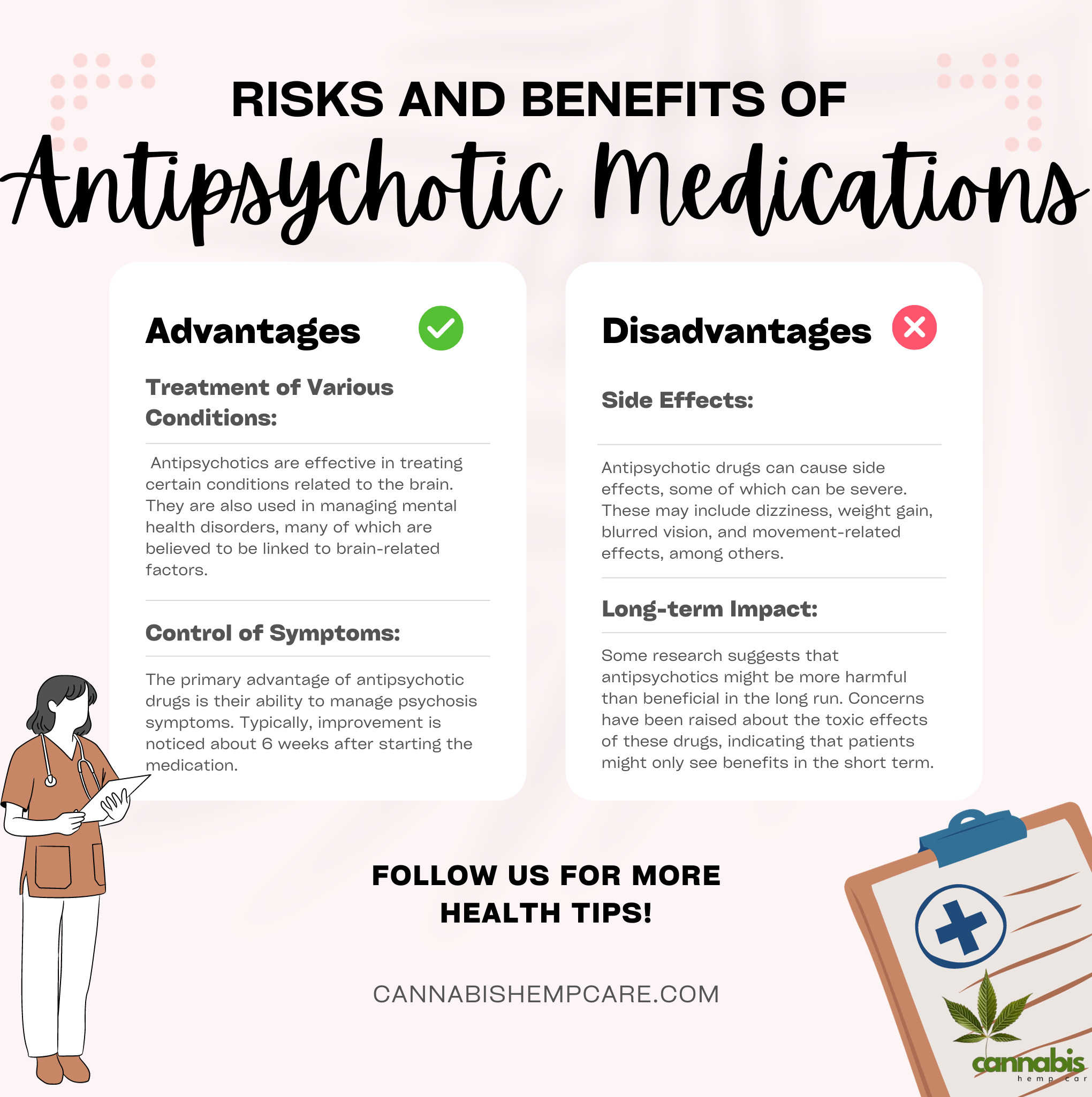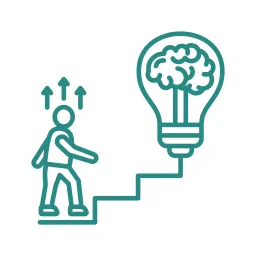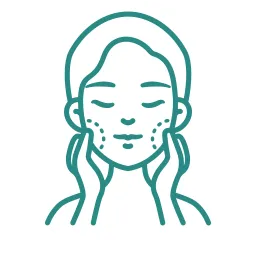Antipsychotic medications play a vital role in managing disorders associated with psychosis. Psychosis isn’t a disease but a set of symptoms indicating that the brain is not processing certain information correctly. These symptoms are characterized by a detachment from reality, primarily manifesting as hallucinations and delusions.1
Types Of Antipsychotics
There are two main types of antipsychotic medications:
First-Generation Antipsychotics
The first generation of antipsychotic medications, also referred to as “typical antipsychotics,” were the initial drugs formulated for the treatment of psychosis. The list of these first-generation antipsychotics includes:
- Chlorpromazine
- Fluphenazine
- Haloperidol, also known as Haldol®
- Loxapine, marketed under the brand name Adusuve®
- Molindone
- Perphenazine
- Pimozide, sold under the brand name Orap*
- Prochlorperazine, known commercially as Compro®
- Thiothixene
- Thoridazine
Second-generation Antipsychotics
The second generation of antipsychotic medications, also referred to as “atypical antipsychotics,” are currently the primary drugs used in the treatment of psychosis. This is largely due to their fewer side effects. The most frequently prescribed atypical antipsychotics include:
- Ziprasidone
- Olanzapine
- Quetiapine
- Risperidone

Uses Of Antipsychotics
Antipsychotic medications are utilized to manage symptoms of psychosis, including delusions, hallucinations, paranoia, and disoriented thinking. They play an important role in the treatment of conditions like schizophrenia, intense depression, and severe anxiety.2 Additionally, they are effective in stabilizing manic episodes in individuals diagnosed with Bipolar Disorder.
Side Effects Of Antipsychotic Medications
Like all medications, antipsychotic drugs can also cause a variety of side effects, which can range from mild to severe. The kind and intensity of these side effects can depend on the specific medication and the frequency of its use. Here are some common side effects associated with antipsychotic medications:
- Dryness in the mouth
- Feeling dizzy
- Weight gain, which could potentially lead to diabetes3
- Vision becoming blurred
- Effects on movement, such as tremors, stiffness, or agitation
- Sedation, which could cause feelings of sleepiness or low energy
- In women, there could be a loss of menstrual periods
- Feelings of stiffness and shakiness
- A sluggish feeling or slow thinking4
- Restlessness that is uncomfortable
- Increase in blood pressure
- Decrease in sex drive
- Swelling or tenderness in the breasts
Duration Of Side Effects Of Antipsychotic Medications
The side effects of antipsychotic medications can last for varying lengths of time. Some side effects may temporarily disappear after a few days, while others may persist longer. It may take between 2 to 4 weeks for symptoms to start subsiding after beginning the medication and several more weeks for the full effects to be felt5. The medication dosage is typically increased gradually to help minimize side effects. It’s important to remember that each individual’s reaction to medication is unique, so the duration of side effects can differ from person to person. It’s always recommended to consult with a healthcare provider for advice tailored to your specific circumstances

Risks And Benefits
Antipsychotic medications come with a set of advantages and disadvantages:
Advantages:
- Treatment of Various Conditions: Antipsychotics are effective in treating certain conditions related to the brain. They are also used in managing mental health disorders, many of which are believed to be linked to brain-related factors.
- Control of Symptoms: The primary advantage of antipsychotic drugs is their ability to manage psychosis symptoms. Typically, improvement is noticed about 6 weeks after starting the medication6.
Disadvantages:
- Side Effects: Antipsychotic drugs can cause side effects, some of which can be severe. These may include dizziness, weight gain, blurred vision, and movement-related effects, among others.
- Long-term Impact: Some research suggests that antipsychotics might be more harmful than beneficial in the long run. Concerns have been raised about the toxic effects of these drugs, indicating that patients might only see benefits in the short term.

Conclusion
Antipsychotic drugs play a significant role in managing certain mental disorders. Like any medication, it has potential risks and side effects. Patients must collaborate with their healthcare providers to identify the most beneficial medication with minimal side effects. Always seek advice from a healthcare professional for optimal treatment choices.
FAQs
Sources
- “Antipsychotics: A Key Tool in Modern Mental Health Care.” Cleveland Clinic, 12 Feb. 2023, my.clevelandclinic.org/health/treatments/24692-antipsychotic-medications. Accessed 4 Nov. 2023. ↩︎
- https://www.facebook.com/Drugscom. “Antipsychotics.” Drugs.com, Drugs.com, 2019, www.drugs.com/drug-class/antipsychotics.html. Accessed 4 Nov. 2023. ↩︎
- Better Health Channel. “Antipsychotic Medications.” Vic.gov.au, 2012, www.betterhealth.vic.gov.au/health/conditionsandtreatments/antipsychotic-medications. Accessed 4 Nov. 2023. ↩︎
- “What Are the Side-Effects of Antipsychotic Meds?” MHA Screening, screening.mhanational.org/content/what-are-side-effects-antipsychotic-meds/. Accessed 4 Nov. 2023. ↩︎
- Dr Laurence Knott. “Antipsychotic Medicines.” Patient.info, 29 June 2018, patient.info/mental-health/schizophrenia-leaflet/antipsychotic-medicines. Accessed 4 Nov. 2023. ↩︎
- HealthDirect. “Antipsychotic Medications.” Healthdirect.gov.au, Healthdirect Australia, 20 Dec. 2021, www.healthdirect.gov.au/antipsychotic-medications. Accessed 4 Nov. 2023. ↩︎




































